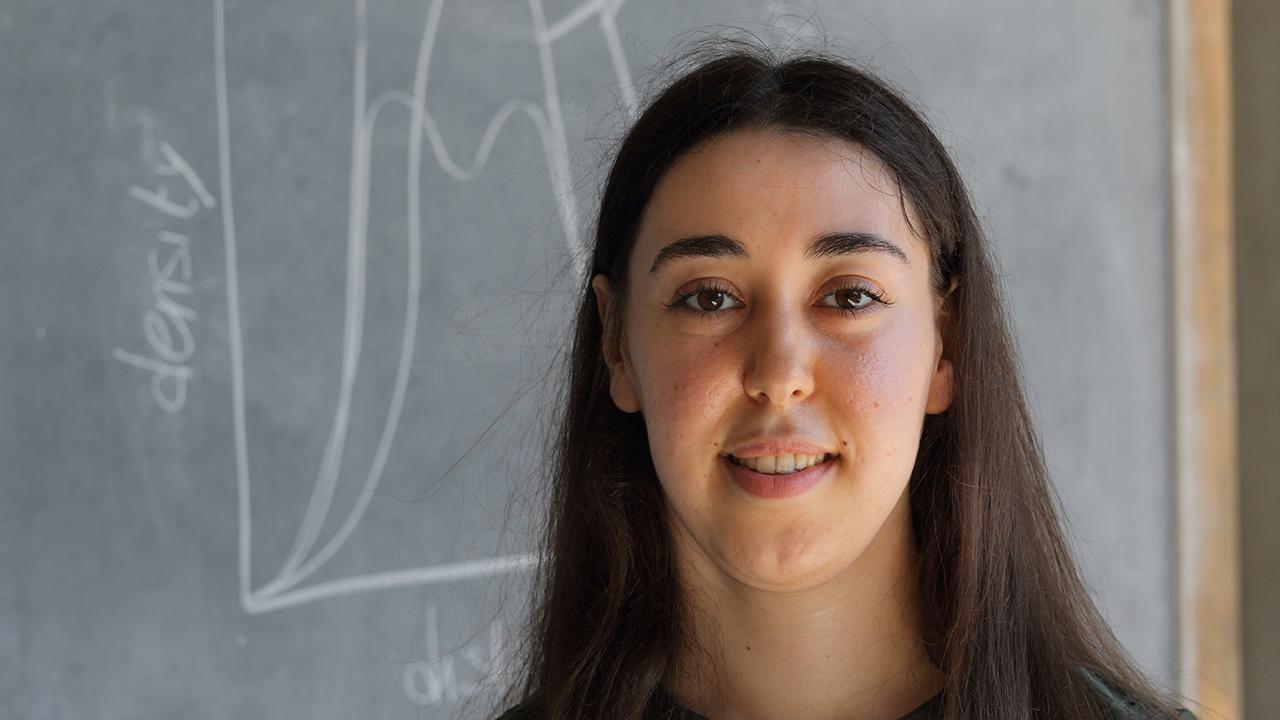
Jana Eddine of Lebanon chose to study physics at university, among all subjects, “Because, although I like math very much, physics has a connection with real life, it describes how everything around us works,” she says. “Despite there not being many scientists in my family, I was also very encouraged by my parents, because there is a lack of teachers in scientific subjects at all levels in Lebanon, due to the fact that most people prefer subjects that give access to a clearer career path, such as economy, finance, medicine or engineering,” she explains.
After obtaining a bachelor’s degree in physics, Eddine went on to do a master’s degree in subatomic physics. For her final master’s project, she worked on quantum computing, and it was her supervisor, Wissam Chemissany, a professor at Caltech, who advised her to apply to ICTP. “He said it would open up opportunities for me,” she explains, adding, “The economic and social crises in Lebanon make things very difficult, and there are very few universities that offer PhD positions. Now I know that coming to ICTP was really the best decision I could make.”
The professors in the ICTP Diploma Programme want to make sure that we get the most out of the programme and learn as much as possible.
For Eddine the hard work required by the intense rhythm of the Diploma Programme was counterbalanced by the feeling of having become part of an advanced international research environment. “The courses are really tough, the programme is intense, and we often had to take many courses at the same time,” she explains, “but it has been really interesting to attend the lectures and see researchers work collaboratively,” she adds.
Like many other students, Eddine particularly appreciated the relationship with the professors of the Programme. “They really care about us. They do not expect that we are perfect students, but they want to make sure that we get the most out of the programme and learn as much as possible. They were capable of giving us the push we needed to not lose track and keep on working,” she says.
An aspect that Eddine found particularly exciting during her year at ICTP is the many opportunities she has had to meet with world renowned scientists. “ICTP’s special environment almost makes it easy to talk to them, and this is very unique about ICTP,” she says. “One encounter that strikes me the most – although it only happened online and not in person – was with Prof. Leonard Susskind, one of the four 2023 Dirac Medalists. My master’s thesis was on quantum complexity which is the topic of the talk he gave at the ceremony. It was great to hear him talk about a topic I am familiar with,” she recounts.
ICTP’s special environment almost makes it easy to talk to the many renowned scientists that come here, and this is very unique about ICTP.
For her final project, Eddine has worked on a project that aims at understanding the physics of water in greater detail. In particular, her research focusses on supercooled water, that is liquid water below freezing temperature. “Because supercooled water is very hard to study experimentally, we need simulations to investigate it,” she explains, and continues, “Our aim is to understand the second critical point in supercooled water, whose existence has yet to be proved. It is exciting!”
ICTP has also kept its promise to open up new possibilities for Eddine. Next year, she will start a PhD on the physics of biological systems as part of the doctoral programme that ICTP runs jointly with SISSA. “I applied to this programme because it is something new, that I first encountered here at ICTP as part of the Diploma Programme,” she explains. “I like that it is very interdisciplinary, and I will have to deal with classical physics, which to me feels closer to everyday life,” she adds.
There is also what she calls a more ‘rational’ reason behind Eddine’s choice to move from quantum computing to biophysics, and it has to do with the future she envisions for herself. “One day I would like to go back to Lebanon, and I think this field of study will open up more possibilities for me there,” she concludes.
















